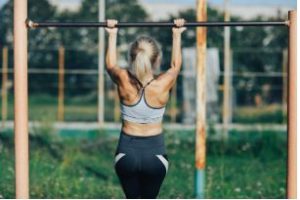Why Does Grip Strength Matter?
Grip strength might seem like a small detail, but it turns out it’s a surprisingly powerful predictor of overall health and longevity.
That ability to hang onto a bar or haul a heavy suitcase isn’t just a party trick—it can actually give insight into how well you’re aging. Grip strength, which reflects how well your hands and forearms can grasp, hold, and carry, is gaining recognition as a meaningful measure of aging. It’s connected to everything from bone density and fall risk to mood, sleep quality, and even lifespan, according to research published in *Clinical Interventions in Aging*.
“Grip strength is like a window into your body’s overall strength and function,” says Heather Milton, an exercise physiologist at NYU Langone Sports Performance Center. Best part? It’s easy to measure on your own (more on that later).
#A Snapshot of Muscle Health
Grip strength serves as a proxy for muscle health, which in turn is essential for managing blood sugar, supporting heart health, maintaining balance and mobility, and even enhancing cognitive function. As a result, researchers now view grip strength as a valuable biomarker of healthy aging.
The same study linked higher grip strength to better bone density, sharper cognitive skills, better mood, improved sleep, and a reduced risk of chronic diseases like heart disease and diabetes. It also correlated with a lower chance of hospitalization or long-term disability.
“We’ve known that muscle maintenance supports long-term health,” says Milton. “Grip strength is a quick, effective way to assess overall muscular health.”
### Why It’s More Than Just Hand Strength
Grip isn’t just about your hands—it reflects your whole-body resilience. Since the small muscles involved in grip often fatigue first, grip can limit performance in larger strength exercises. That’s part of why it’s such a good indicator: struggling with grip might suggest deeper strength deficits.
“We lose muscle and strength each decade after age 40, but grip strength is easy to monitor and measure,” explains Joanne Donoghue, PhD, exercise physiologist and professor at NYIT College of Osteopathic Medicine. Clinicians often use a hand dynamometer to assess it because it’s a solid indicator of lean mass and physical capacity.
Grip is also the bottleneck in many strength exercises. “You could deadlift a lot more if your grip didn’t give out first,” says strength coach Tina Tang, CPT, founder of Iron Strong Fitness. “The same goes for pull-ups—your ability to hang from the bar is the first test.”
### What Strength Training Can Do
Improving grip strength enhances your ability to carry heavy items and boosts performance in other grip-demanding movements like rows and pull-ups. But even more importantly, keeping your grip strong helps you stay active, mobile, and independent as you get older.
Want to learn more? [Click here to read more about why grip strength matters.]
As an Irvine weight loss coach and Orange County nutritionist, I often emphasize the value of muscle maintenance for long-term health. Whether you’re working with an Irvine nutritionist to improve overall wellness or seeking Orange County weight loss support, grip strength can be a meaningful part of the picture. After all, staying strong helps you stay independent. Just one more reason why a local weight loss expert in Irvine might suggest strength training as part of your wellness journey.






